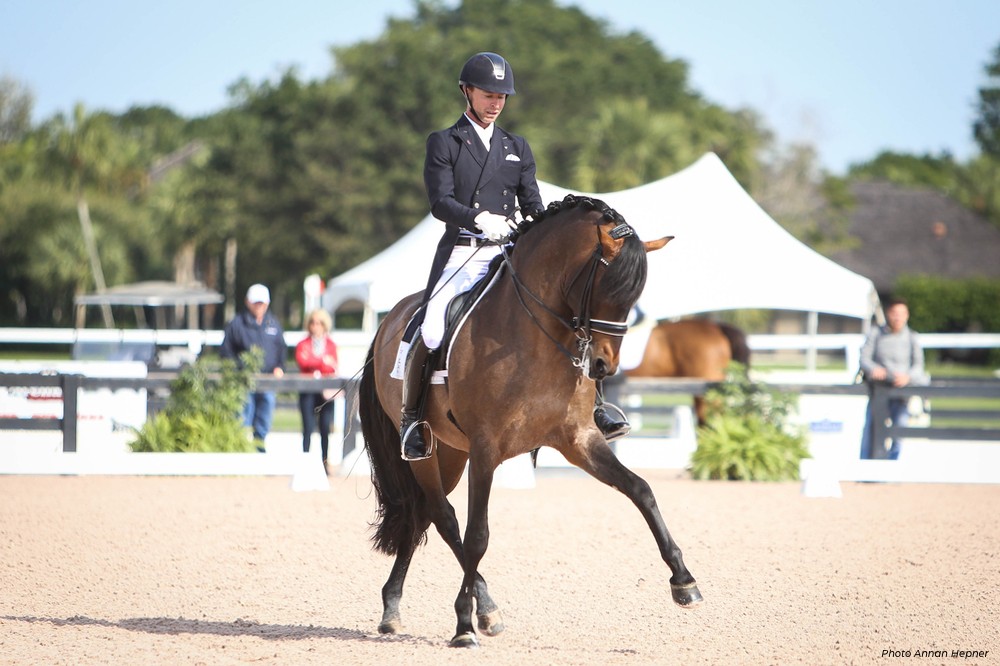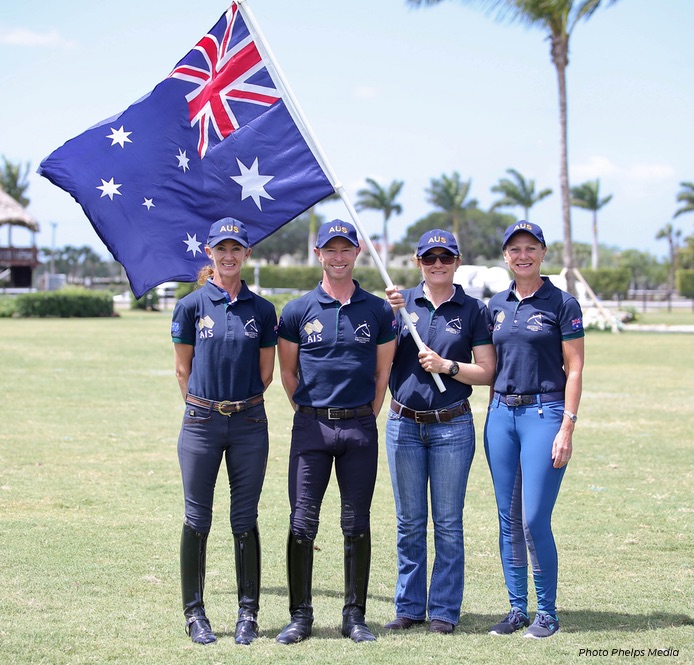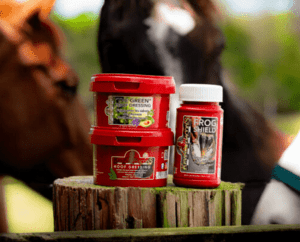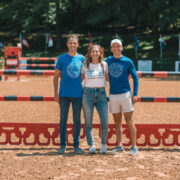Nicholas Fyffe: Step Out Of Your Comfort Zone

Nicholas Fyffe is an Australian grand prix dressage rider and trainer, but he began his riding career as an international three-day eventer. Nicholas contributed to the Australian team’s gold medal in the 2007 Tri Nations Cup in Johannesburg, South Africa, and he has ridden on five Nations Cup Teams in Wellington, Fla. In 2018, Nicholas helped Australia make history by clinching their first medal finish in the CDIO3* Nations Cup in Wellington and he also claimed an individual bronze medal in the Intermediate I Freestyle. He runs Marcus Fyffe Dressage in Wellington with his husband, Olympian David Marcus.
Think Germany in the dead of winter. A trailer with no heat to call home. Long hours working in a foreign country halfway across the world from everything familiar. What could possibly possess a young person to hightail it out of their native country of Australia to live as a full-time working student (and part-time human popsicle) in a far-away country?
Only passion could motivate such a lifestyle, and the passion that happened to grip me as a young man, and still does to this day, is horses. My desire to improve as a horseman and rider has always overshadowed the numerous obstacles that have risen in my path.
Prior to moving to Germany (for the second time) at the ripe age of 21 to be a working student, I had an upbringing full of horses. Though I started riding at the age of three, I took a couple years off from riding to focus on competitive gymnastics. When I decided to discontinue gymnastics training, I threw myself back into riding as a teenager. I became completely obsessed with it.
Where I lived in Australia, there was no access to top competitions and very few top trainers to influence me positively in my riding. Determined to find whatever opportunity I could after turning 17, I sought out the national eventing coach, calling him every week until there was an opening available for me. When I finally had my place in his barn, I worked tirelessly and made myself valuable to him. I did everything — mucked stalls, groomed, competed numerous horses at a single show while grooming, stood stallions at stud, collected stallion semen, inseminated the mares, weaned the foals, started many horses under saddle and even rode in auctions. You name it, I did it. It was a serious eye-opener for me. I learned to work extremely hard and I saw how difficult it is to be a professional rider — but instead of deterring me, it deepened my commitment to the sport.
I groomed for my trainer at the 2002 World Equestrian Games and, while we were based in Germany leading up to the WEG, I was exposed to dressage in its finest form. I started to think, “hang on a moment, I think I’m a closet dressage rider!” One of the toughest things I had to do was explain to my eventing trainer at the time that I really wanted to focus on dressage.
She believed in me when someone else didn’t, and I think if I hadn’t been given that opportunity, I may never have believed in myself.
After working nonstop for years, I was given the opportunity to start young horses and compete in shows in Australia. It was there, once I was given some exposure, that someone saw my talent and believed in me, when I was just 19 or 20 years old at the time. Bonnie Holstein gave me the ride on a horse she had trained up to grand prix. She believed in me when someone else didn’t, and I think if I hadn’t been given that opportunity, I may never have believed in myself.

Some people would say I was in the right place at the right time, but I had been in that place working passionately for four years, devoting myself to a top trainer and making myself invaluable in hopes of being afforded more opportunities. I had no other way of achieving them but to work for them. I was fortunate enough that I was given the ride on that grand prix horse, but it took me 10 years after that to develop another grand prix mount for myself.
I realized that I needed to push myself outside of what had become my comfort zone to truly improve in dressage following my four years of work for the eventing trainer. I knew that Germany was the best place for me to do that, so I left everything again, staying for a year and developing a good base of knowledge and skill. You have to keep pushing yourself out of your comfort zone if you want to continue to grow.
After riding and competing in international grand prix and even being the youngest rider in the grand prix at the Australian National Championships, I started right at the bottom again as a working student when I returned to Germany for the second time. I groomed and did the grunt work as I learned, knowing I needed to go back to the basics to really improve myself. Returning to the basics is difficult but there is no magic trick to reach the top.
I learned to work extremely hard and I saw how difficult it is to be a professional rider — but instead of deterring me, it deepened my commitment to the sport.
Of course, living in a trailer in Germany that didn’t always have heat in the middle of winter was no walk in the park, but it was a sacrifice I was willing to make. When it snowed and the electricity went out, you put more clothes on…I had to just survive. Thankfully, that kind of work ethic helped me land where I am today.
If you want to be successful in this sport, you really have to be obsessed with it. You can’t just be passionate about it. You will soon learn this sport is not always a level playing field, and if you only focus on that, you may get bitter and quit. You also have to focus on the fact that money can’t buy the connection you can create with the horse. The connection that you create with the horse is very hard to compete against.
I can’t say anything to you to keep you motivated to improve yourself and work your way up. It has to come from within. I can say a lot of things to give people hope or keep this light at the end of the tunnel, but either it’s in you or it’s not. Nothing else drives me more than wanting to do this — that’s why I’m so resilient and why I stick with it. I think that’s what people see in young, passionate equestrians they chose to help. They give opportunity to people who have that passionate dedication.


